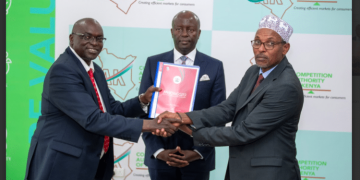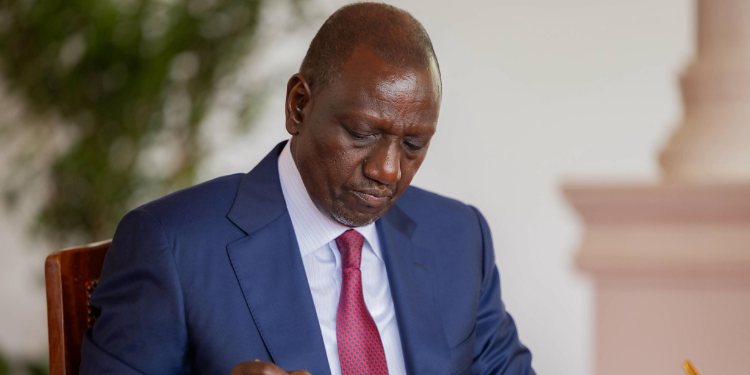Kenya is losing as much as $1.5 billion (Ksh195 billion) each year to corruption, state capture, and financial mismanagement, according to a new report by the African Development Bank (AfDB).
The funds lost through graft, illicit financial flows, tax exemptions, and inefficiencies in public spending are significantly undermining the country’s ability to finance its own development and economic growth.
“Corruption and illicit financial flows cost the East African nation as much as $1.5 billion annually – funds that could transform health, education, and infrastructure development,” AfDB said in a report published on Wednesday.
At the same time, the report revealed that inefficiencies in public spending cost Kenya an estimated 5% of its gross domestic product, while tax exemptions and incentives account for an additional $800 million (Ksh104 billion) in lost revenue each year.
“Combined, these losses undermine Kenya’s capacity to finance its own development and reduce reliance on external aid,” the lender said.
Kenya Losing Ksh195 Billion Annually to Graft and State Capture
Furthermore, the report noted that so-called state capture—where political elites dominate lawmaking and enforcement—is subverting the rule of law and creating uncertainty, which discourages investment and hinders capital mobilization.
“Investors fear biased rulings, delays, and lack of transparency, increasing operational risks and deterring investment,” the AfDB said.
“Ultimately, the rule of law, upheld by robust law enforcement and an independent judiciary, remains the foundation for sustained economic growth, social equity, and public trust in governance.”
Also Read: Govt Dragged to Court Over Ksh7 Billion Bus Rapid Transit Project
Kenya Ranked 121st in the Corruption Index
In 2024, Kenya was ranked in the bottom third of Transparency International’s Global Corruption Perceptions Index (CPI), alongside countries such as Sri Lanka, Angola, Ecuador, and Uzbekistan.
According to the 2024 CPI, Kenya was ranked 121st out of 180 countries, signaling persistent governance and integrity challenges.
The country obtained a score of 32 out of 100, a slight improvement from 31 points in 2023.
However, the score remains below both the Sub-Saharan Africa average of 33 and the global average of 43. A score below 50 indicates serious levels of corruption in the public sector.
Kenya’s CPI score has remained largely stagnant over time. A five-year trend analysis shows a minimal change, with just a one-point increase between 2020 (31 points) and 2024 (32 points).
Historically, Kenya’s corruption ranking has averaged 125.57 from 1996 to 2024, peaking at a high of 154 in 2010 and recording a low of 52 in 1996.
Bribery, Embezzlement Still Plague Kenya as Economy Eyes 5% Growth
Bribery, embezzlement of public funds, and misuse of public resources remain entrenched, with reports from the Ethics and Anti-Corruption Commission (EACC) highlighting widespread public dissatisfaction with integrity, transparency, and accountability in the public service.
Also Read: IMF Audit Team in Kenya for 2 Weeks to Investigate Corruption
Despite these governance challenges, the AFBD expects Kenya’s economic growth to accelerate to 5% in 2025, up from 4.7% in 2024, driven by strong performance in agriculture and services.
However, growth is projected to slow slightly to 4.8% in 2026.
“Rising poverty, high unemployment, and growing inequality indicate that Kenya’s economic growth has not been fully inclusive,” the report warned.
Follow our WhatsApp Channel and X Account for real-time news updates.












































































